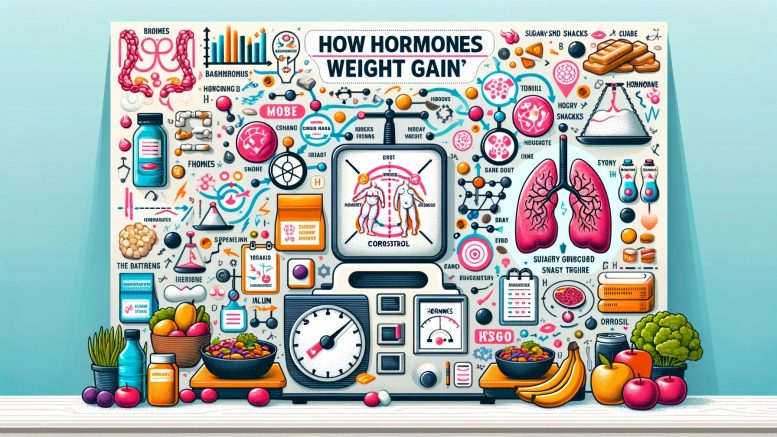Are you tired of the endless cycle of weight gain and frustration? It’s time to uncover the hidden forces driving your body’s fat storage and learn how to flip the script for good. Let’s dive deeper into the world of hormones:
Insulin: Imagine insulin as your body’s traffic cop, directing glucose (sugar) from your bloodstream into your cells for energy. When you eat carbs, especially refined sugars and starches, insulin spikes to manage the influx of glucose. But here’s the catch: if you’re constantly bombarding your system with carbs, insulin can become less effective, leading to insulin resistance and weight gain.
Cortisol: Meet cortisol, your body’s built-in alarm system for stress. When you’re under pressure—whether it’s from work, relationships, or just the daily grind—cortisol kicks into high gear, mobilizing energy stores to help you cope. But chronic stress can throw this system out of whack, leading to elevated cortisol levels and increased fat storage, particularly around your midsection.
Leptin: Picture leptin as your body’s hunger thermostat. When fat cells release leptin, it signals to your brain that you’ve had enough to eat, curbing your appetite and promoting fat burning. But if you’re constantly overeating or skimping on sleep, your body can become resistant to leptin’s signals, leaving you feeling hungry and prone to weight gain.
Ghrelin: Say hello to your stomach’s wake-up call—ghrelin! This hunger hormone kicks into gear when your stomach is empty, signaling to your brain that it’s time to refuel. But irregular eating patterns or late-night snacking can throw ghrelin production out of whack, leaving you feeling constantly hungry and reaching for the nearest snack.
Sex Hormones: Hormones like estrogen and testosterone also play a role in weight regulation. Imbalances in these hormones can affect metabolism, appetite, and fat distribution, leading to weight gain, especially around the hips and abdomen.
Growth Hormone: Growth hormone is essential for tissue growth and repair, including muscle growth. Adequate levels of growth hormone can support lean muscle mass, which in turn boosts metabolism and helps burn more calories.
Ready to take charge of your hormones and transform your body from the inside out? Here’s your roadmap to success:
Mindful Eating: Opt for whole, nutrient-dense foods that keep insulin levels stable and cravings at bay.
Stress Management: Find healthy ways to cope with stress, whether it’s through exercise, meditation, or spending time in nature.
Quality Sleep: Prioritize sleep and establish a consistent bedtime routine to support leptin sensitivity and regulate ghrelin production.
Intermittent Fasting: Intermittent fasting has gained popularity as a powerful tool for optimizing hormone levels and promoting weight loss. By cycling between periods of eating and fasting, intermittent fasting can help regulate insulin sensitivity, reduce cortisol levels, and improve leptin and ghrelin balance. Plus, it offers additional benefits like improved metabolic health and increased fat burning.Consider incorporating intermittent fasting into your routine to optimize hormone levels and accelerate weight loss.
Regulate Sex Hormones: Maintain a healthy weight, engage in regular exercise, and consume a balanced diet rich in essential nutrients to support balanced sex hormone levels.
Support Growth Hormone: Get enough sleep, engage in regular strength training exercises, and consume adequate protein to support optimal growth hormone production.
By understanding how these hormones work and implementing simple lifestyle changes, you can finally break free from the cycle of weight gain and unlock the vibrant, energetic version of yourself that’s been waiting to emerge.

